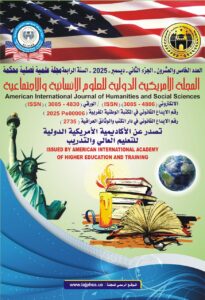Izaddin Ahmad Aziz, Associate Professor
Salahaddin University
https://orcid.org/0000-0002-0538-0941
Murat Yıldırım, Associate Professor
ORCID: https://orcid.org/0000-0003-1089-1380
Ağrı İbrahim Çeçen University
Abstract
In the relevant literature, the majority of empirical work has been carried out on refugees’ psychological health by highlighting the importance of the absence of psychopathology rather than their well-being and positive functioning. The current study sought to examine the predictive role of hope, belongingness and social support in explaining the flourishing of Syrian refugees. A cross-sectional research design was used to collect data. Participants were 330 Syrian refugees living in Iraq and their ages ranged between 18 and 60 years with a mean age of 30.02 years (SD = 9.31). Participants completed the measures of hope, social support, belongingness, and flourishing. Gender comparison analysis showed that males reported significantly greater levels of belongingness, social support, and flourishing in comparison to females. Correlation analysis showed that higher levels of hope, belongingness and social support were correlated with greater flourishing. Hierarchical regression analysis indicated hope, belongingness, and social support were found to significantly predict flourishing. The results of this study are important in terms of shedding light on psychosocial predictors of the flourishing of Syrian refugees. This suggests that enhancing positive psychosocial resources of refugees could promote greater flourishing, thus contributing to preventive psychosocial programmes.
Keywords: Flourishing, hope, belongingness, social support, Syrian refugee
العوامل النفسية والاجتماعية المؤثرة على الجودة النفسية لدى النازحين السوريين
أ.م.د. عزالدين احمد عزيز
جامعة صلاح الدين – اربيل/ العراق
ORCID: https://orcid.org/0000-0002-0538-0941
Tel: +964(0)7504614786 or +964(0)7834478888
Email: izaddin.aziz@su.edu.krd
أ.م.د. مراد يلدرم
جامعة اغري ابراهيم تشاتشان – اغري/ تركيا
ORCID: https://orcid.org/0000-0003-1089-1380
tel: +90472215 98 63,
Email-1: muratyildirim@agri.edu.tr ; email-2: muratyildirimphd@gmail.com
الملخص
في الأدبيات الموجودة، تم تطبيق غالبية البحوث التجريبية على موضوع الصحة النفسية للاجئين من خلال تسليط الضوء على أهمية غياب علم النفس المرضي بدلا من رفاههم وأدائهم الإيجابي. سعت الدراسة الحالية إلى دراسة الدور التنبؤي للمرونة والأمل والانتماء والدعم الاجتماعي في تفسير الرضا عن الحياة والازدهار بين اللاجئين السوريين. في هذه الدراسة تم استخدام تصميم بحث مقطعي لجمع البيانات. بلغ عدد عينة الدراسة 361 لاجئا سوريا من اللذين يعيشون في مخيمات اللاجئين في العراق، وتراوحت أعمارهم بين 18 و60 عاما، بمتوسط عمر 32.57 عاما (بانحراف معياري قدره 10.05 ). بعد اجابة المشاركين وتحليل البيانات لللمقايس المحددة في الدراسة الحالية أظهر تحليل المقارنة بين الجنسين أن الذكور سجلوا مستويات أعلى بكثير من المرونة والانتماء والازدهار بالمقارنة مع الإناث. كما أظهرت نتائج تحليل الارتباط باستخدام معامل ارتباط بيرسون ان هناك علاجة ايجابية بين كل من المرونة والأمل والانتماء والدعم الاجتماعي والرضا عن الحياة والازدهار. هذا وقد أشارت نتائج تحليل الانحدار الهرمي إلى أن المرونة والأمل متنبئ جيدا للرضا عن الحياة زذلك بعد التحكم في المتغيرات الديموغرافية. كما اشارت النتائج الى ان المرونة والأمل والانتماء والدعم الاجتماعي يمكنها التنبؤ بالازدهار بشكل كبير. ان نتائج هذه الدراسة ضرورية من حيث تسليط الضوء على التنبؤات النفسية والاجتماعية بالجودة النفسية للاجئين السوريين. وهذا يشير إلى أن تعزيز الموارد النفسية الإيجابية للاجئين يمكنه أن يشجع على زيادة الرضا عن الحياة والازدهار، مما يسهم في البرامج النفسية الاجتماعية الوقائية.
الكلمات المفتاحية: الرضا عن الحياة، الازدهار، الصمود، الأمل، الانتماء، الدعم الاجتماعي، اللاجئ السوري
Introduction:
Understanding the well-being of refugees plays critical in the promotion of positive functioning and positive mental health (Güler & Yıldırım, 2022). In this regard, positive psychological factors including social factors and individual differences contribute to the psychological health of the refugees (Yıldırım et al., 2022). Researchers showed that these factors play a vital role in preventing refugees from psycho-social distress (Mitra & Hodes, 2019). Therefore, it is important to identify how social factors and individual factors affect flourishing or psychological well-being.
In the current research paper, we report the findings of cross-sectional research conducted with settled refugees living in Iraq, which we expect to shed light on the impacts of social and individual differences factors in contributing to the flourishing of refugees. There are 4 prominent contributions of the current research to the relevant literature. First, this is one of the first studies to investigate both social and individual differences factors in the flourishing of refugees living in Iraq. We aimed to examine if social and individual differences factors can contribute to higher levels of the flourishing of refugees. This is a very critical point concerning has important implications for practitioners and policymakers. Determining what social and individual differences factors contribute to the higher flourishing of refugees would facilitate effective strategies for dealing with adversities and stressful situations. Second, much earlier research examining the contribution of psychological strengths and resources to mental health and well-being is carried out on student samples (Mohamed & Thomas, 2017). As such, it is vital to further the role of positive psycho-social constructs in adult refugees as the outcomes of research may differ for students and non-students, especially for vulnerable groups. Third, by presenting empirical evidence from a less studied country like Iraq, this research sought to advance the available knowledge about the impact of individual difference characteristics and social factors in flourishing. Finally, flourishing is relatively a novel construct that comprises socio-psychological aspects of well-being (Diener et al., 2010) and is useful for the psychological health of individuals (Yildirim, 2019; 2020). Exploring flourishing will help us to gain a better understanding of the well-being of refugees. To achieve the study aim, firstly, we would hypothesize that females and males would report different levels of social support, belongingness, hope, and flourishing. Secondly, we would expect that belongingness, social support, and hope would positively relate to flourishing. Finally, we assume that higher levels of social support and belongingness hope would significantly predict greater flourishing.
Method
Participants
Participants included 330 Syrian refugees (165 males and 166 females) living in Iraq. Their age varied between 18 and 60 with a mean of 30.02 years (SD = 9.31). The majority of participants were married (60.7%) followed by a single (25.4%), divorced (6.3%), and separated/widowed (3.6%). In terms of education level, 14.9% had gained primary/secondary education, 32.9% had gained high school level, and 52.2% had attended university.
Measures
Adult Hope Scale (AHS: Snyder et al., 1997) measures individual differences in the levels of hope. The AHS includes 8 items clustered into two subscales: pathways and agency. Each item on the scale is rated on a Likert-type scale varying from 1 (definitely false) to 8 (definitely true).
Multidimensional Scale of Perceived Social Support Scale (MSPSS: Zimet et al., 1988) assesses social support from different domains including friends, family, and significant others. The MSPSS comprises 12 items rated on a Likert-type scale varying from 1 (very strongly disagree) to 7 (very strongly agree).
General belongingness (GBS: Malone et al. 2012) measures one’s levels of belongingness through two factors: rejection/exclusion and acceptance/inclusion. The GBS comprises 12 items answered on a Likert-type scale varying from 1 (strongly disagree) to 7 (strongly agree).
Flourishing Scale (FS: Diener et al., 2010) assesses human psychosocial functioning from various aspects including positive relationships with others, meaning in life, engagement with daily activities, and feelings of competence. The FS includes 8 questions rated on a 7-point Likert-type scale, varying from 1 (strongly disagree) to 7 (strongly agree).
Procedure
Participants for this study were collected from refugee camps in Iraq. For the data collection, the research assistants were trained and they were given full information about the purpose and procedure of the current study. All participants were provided information about anonymity and confidentiality of responses alongside the voluntary nature of the involvement. Before taking part in the current research, all participants were required to give their written consent. A paper and pencil version of the questionnaires was used for the data collection. The study procedure was reviewed and approved by a state university ethics committee.
Results
Descriptive statistics
Based on the middle scores of each scale used in this study, participants reported higher levels of social support, hope, belongingness, and flourishing (see Table 1).
| Table 1. Descriptive statistics for the study variables | |||||||||
|
Skewness |
Kurtosis | ||||||||
|
Variable |
Min |
Max | Mean | SD | Statistic | SE | Statistic |
SE |
|
|
Flourishing |
20 | 40 | 32.10 | 5.15 | -0.38 | 0.13 | -0.62 | 0.27 | |
| Hope |
|
||||||||
|
Pathways |
20 | 32 | 28.64 | 2.85 | -0.85 | 0.13 | 0.18 | 0.27 | |
| Agency | 14 | 32 | 26.88 | 4.04 | -1.10 | 0.13 | 0.91 |
0.27 |
|
|
Social support |
|||||||||
| Family support | 15 | 28 | 24.53 | 2.96 | -0.75 | 0.13 | -0.35 |
0.27 |
|
|
Friends support |
12 | 28 | 22.86 | 3.70 | -0.78 | 0.13 | 0.22 | 0.27 | |
| Significant others support | 13 | 28 | 23.21 | 3.79 | -0.71 | 0.13 | -0.27 |
0.27 |
|
|
Belongingness |
|||||||||
| Acceptance/Inclusion | 15 | 42 | 30.99 | 5.81 | 0.13 | 0.13 | -0.88 |
0.27 |
|
|
Rejection/exclusion |
14 | 42 | 30.32 | 5.86 | 0.10 | 0.13 | -0.66 |
0.27 |
|
Comparison analysis
An independent sample t-test was utilised to compare gender in the scores of flourishing, hope, social support, and belongingness. As presented in Table 2, gender difference analysis showed that males had higher scores of flourishing, significant others support, and belongingness in comparison to females.
|
Table 2. Gender differences across the study variables |
||||||
| Variable | Gender | N | Mean | SD | t |
p |
|
Flourishing |
Male | 165 | 32.71 | 5.11 | 2.15 | 0.03 |
| Female | 166 | 31.50 |
5.14 |
|||
|
Pathways |
Male | 165 | 28.50 | 3.09 | -0.86 |
0.39 |
| Female | 166 | 28.77 | 2.59 | |||
|
Agency |
Male | 165 | 26.64 | 4.59 | -1.08 | 0.28 |
| Female | 166 | 27.12 |
3.39 |
|||
|
Family support |
Male | 165 | 24.53 | 2.93 | 0.01 | 0.99 |
| Female | 166 | 24.53 |
3.00 |
|||
|
Friends support |
Male | 165 | 22.98 | 3.81 | 0.55 | 0.58 |
| Female | 166 | 22.75 |
3.59 |
|||
|
Significant others support |
Male | 165 | 23.62 | 3.45 | 2.01 | 0.04 |
| Female | 166 | 22.79 |
4.07 |
|||
|
Acceptance/inclusion |
Male | 165 | 32.36 | 5.67 |
4.42 |
0.00 |
|
Female |
166 | 29.62 |
5.64 |
|||
|
Rejection/exclusion |
Male | 165 | 31.35 | 5.71 |
3.22 |
0.00 |
|
Female |
166 | 29.30 |
5.85 |
|||
Correlation analysis
The bivariate correlation coefficients were computed to explore the relationships between the variables of this study. A higher level of flourishing was found to be significantly and positively correlated with higher levels of hope, social support, and belongingness (see Table 3).
|
Table 3. Bivariate correlations between the study variables |
||||||||
| Variable | 1. | 2. | 3. | 4. | 5. | 6. | 7. |
8. |
|
1. Flourishing |
— | |||||||
| 2. Pathways | .58** |
— |
||||||
|
3. Agency |
.59** | .65** | — | |||||
| 4. Family support | .18** | .19** | .23** |
— |
||||
|
5. Friends support |
.32** | .23** | .32** | .62** | — | |||
| 6. Significant others support | .16** | .05 | .14* | .47** | .57** |
— |
||
|
7. Acceptance inclusion |
.35** | .14* | .21** | .07 | .08 | .02 | — | |
| 8. Rejection exclusion | .31** | .14* | .21** | .15** | .09 | -.01 | .81** |
— |
| **. p<0.01; *. p<0.05 | ||||||||
Hierarchical regression analysis
A hierarchical regression analysis was carried out to investigate the predictive roles of psychosocial factors in flourishing. In the regression models, age, gender, economic level, and marital status were controlled for. As presented in Table 4, the results showed that higher levels of pathways, agency, friends social support, and acceptance/inclusion belongingness were found to be significant predictors of flourishing by explaining an additional variance of 39% in flourishing.
|
Table 4. Hierarchical multiple regression analysis predicting flourishing |
||||
| Variable | B | β | t |
p |
|
Step 1 |
F (4, 330) = 11.79, p<0.01, R = .36, R2 = .13 | |||
| Age | 0.09 | 0.18 | 3.37 |
0.00 |
|
Gender |
-0.64 | -0.06 | -1.18 | 0.24 |
| Education level | 0.56 | 0.12 | 2.25 |
0.03 |
|
Marital status |
-1.31 | -0.28 | -5.22 | 0.00 |
|
Step 2 |
F (11, 330) = 30.65, p<0.01, R = .72, R2 = .51, ΔR2 = .39 |
|||
| Pathways | 0.58 | 0.32 | 6.08 |
0.00 |
|
Agency |
0.37 | 0.29 | 5.34 | 0.00 |
| Family support | -0.15 | -0.09 | -1.64 |
0.10 |
|
Friends support |
0.19 | 0.14 | 2.39 | 0.02 |
| Significant others support | 0.08 | 0.06 | 1.16 |
0.25 |
|
Acceptance inclusion |
0.15 | 0.17 | 2.43 | 0.02 |
| Rejection exclusion | 0.03 | 0.04 | 0.53 |
0.59 |
Discussion
Even though psychological and social factors are taken into account as key components in the promotion of well-being and psychological health of refugees, little attention has been given to the simultaneous investigation of specific psychological and social factors (i.e., social support, hope, belongingness) in the prediction of psychological well-being. This study provided useful evidence regarding the roles of hope, social support, and belongingness in predicting the flourishing of Syrian refugees. The current findings are consistent with those of previous findings (Bajwa et al., 2019; Brailovskaia et al., 2019; Long et al., 2020; Correa-Velez et al., 2010).
Findings of this research suggest that refugees with a greater ability to bounce back from adverse situations, expectations or desire for a specific situation to occur, have higher support from friends, families, and other individuals, and feel belong to other people experience a high level of flourishing. As the psychological health and well-being of refugees is particularly important for policy-makers, practitioners and researchers, the current research has the potential to carry important implications for public health based on the significant relationship of psychosocial factors with flourishing. Policies and programs focused on the broader psycho-social determinants of well-being are necessary for minimising dissatisfaction with life reported by refugees, whereas strategies that focus on addressing the flourishing and well-being needs of refugees are warranted.
This study has several limitations. First, to collect data, we used self-report assessment tools which are subjected to some biases such as overestimating or underestimating responses. Second, a cross-sectional research design was used, and it is impossible to conclude a causal relationship between the variables. Future research is needed to use longitudinal research design in this regard. This study was conducted on Syrian refugees living in Iraq. Future research should replicate the findings of the current study to improve the generalizability of findings on refugees living in other countries.
References
Bajwa, J., Abai, M., Couto, S., Kidd, S., Dibavar, A., & McKenzie, K. (2019). Psychological capital and life satisfaction of refugees in Canada: Evidence from a community-based educational support program. Journal of Community Psychology, 47(3), 504–516.
Brailovskaia, J., Schonfeld, P., Kochetkov, Y., & Margraf, J. (2019). What does migration mean to us? USA and Russia: Relationship between migration, resilience, social support, happiness, life satisfaction, depression, anxiety and stress. Current Psychology, 38(2), 421–431. https://doi.org/10.1007/s12144-017-9627-3
Correa-Velez, I., Gifford, S. M., & Barnett, A. G. (2010). Longing to belong: Social inclusion and wellbeing among youth with refugee backgrounds in the first three years in Melbourne. Social Science & Medicine, 71(8), 1399–1408.
Diener, E., Wirtz, D., Tov, W., Kim-Prieto, C., Choi, D. W., Oishi, S., & Biswas-Diener, R. (2010). New well-being measures: Short scales to assess flourishing and positive and negative feelings. Social Indicators Research, 97(2), 143–156. https://doi.org/10.1007/s11205-009-9493-y
Güler, A., & Yıldırım, M. (2022). Associations between acculturation, perceived discrimination and subjective well‐being among Syrian adolescents living in Turkey. International Journal of Psychology, 57(2), 171-180.
Long, L. J., Bistricky, S. L., Phillips, C. A., D’Souza, J. M., Richardson, A. L., Lai, B. S., Short, M., & Gallagher, M. W. (2020). The potential unique impacts of hope and resilience on mental health and well‐being in the wake of Hurricane Harvey. Journal of Traumatic Stress, 33(6), 962–911. https://doi.org/10.1002/jts.22555
Malone, G. P., Pillow, D. R., & Osman, A. (2012). The general belongingness scale (GBS): Assessing achieved belongingness. Personality and Individual Differences, 52(3), 311–316. https://doi.org/10.1016/j.paid.2011.10.027
Mitra, R., & Hodes, M. (2019). Prevention of psychological distress and promotion of resilience amongst unaccompanied refugee minors in resettlement countries. Child: Care, Health and Development, 45(2), 198-215.
Mohamed, S., & Thomas, M. (2017). The mental health and psychological well-being of refugee children and young people: An exploration of risk, resilience and protective factors. Educational Psychology in Practice, 33(3), 249-263.
Snyder, C. R., Hoza, B., Pelham, W. E., Rapoff, M., Ware, L., Danovsky, M., Highberger, L., Rubinstein, H., & Stahl, K. J. (1997). The development and validation of the Children’s Hope Scale. Journal of Pediatric Psychology, 22(3), 399–421.
Yildirim, M. (2019). Mediating role of resilience in the relationships between fear of happiness and affect balance, satisfaction with life, and flourishing. Europe’s Journal of Psychology, 15(2), 183-198.
Yildirim, M. (2020) Optimism as a Predictor of Flourishing Over and Above the Big Five Among Youth. Paper presented at International Academic Studies Conference, Turkey.
Yıldırım, M., Aziz, I. A., Vostanis, P., & Hassan, M. N. (2022). Associations among resilience, hope, social support, feeling of belongingness, satisfying action with life, and flourishing among Syrian minority refugees. Journal of Ethnicity in Substance Abuse, 1-16.
Zimet, G. D., Dahlem, N. W., Zimet, S. G., & Farley, G. K. (1988). The multidimensional scale of perceived social support. Journal of Personality Assessment, 52(1), 30–41. https://doi.org/10.1207/s15327752jpa5201_2






